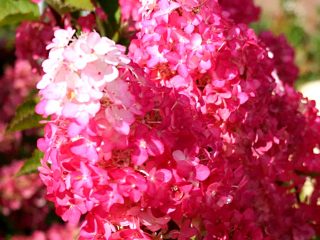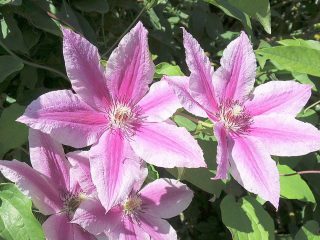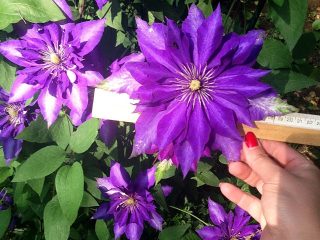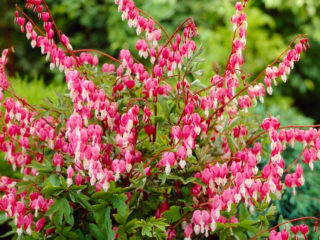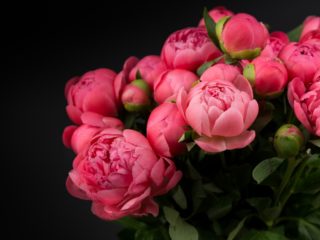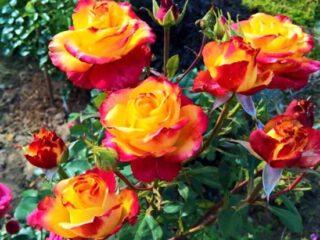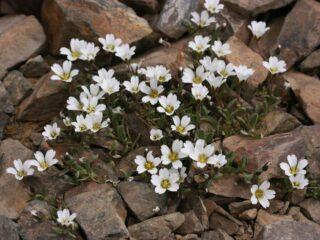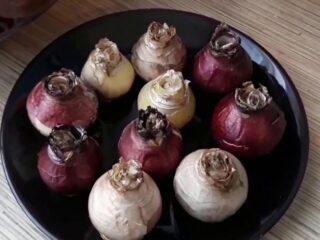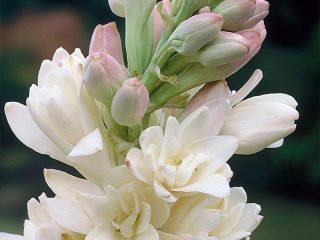Content
Echinacea Green Twister is a herbaceous perennial characterized by long flowering and increased resistance to adverse external factors. Also, this variety of echinacea stands out among others due to its original color, so it cannot go unnoticed even in a large collection. In order for Echinacea Green Twister to show maximum decorative value every season and maintain high vital potential for many years, it is necessary to plant it correctly and provide care in accordance with the requirements of the culture.
Origin
The Dutch perennial variety Green Twister was obtained as a result of natural selection. Its basis was Echinacea Magnus, from which the new type of crop took the best characteristics. It is not known for certain who exactly is the originator of the Green Twister variety.
Description of Echinacea Green Twister

Green Twister Echinacea does not have medicinal properties
This type of echinacea is a herbaceous bush with numerous shoots.The height of the perennial during the flowering period reaches 100 cm, and the diameter of its growth is 55-60 cm. The stems of Green Twister are straight-growing with a rough surface. They alternately bear leaves of elongated lanceolate, sessile type. Their length ranges from 10 to 12 cm.
At the base of Echinacea there are leaves of a different type, forming a basal rosette. They are broadly oval, tapering at the base. The lower leaves of Green Twister are much larger than the upper leaves. They have jagged edges and long petioles. All leaves of Echinacea Green Twister are of a rich green hue, and their surface is covered with a short edge.
Flowers are solitary, terminal. They are shaped like a daisy with a convex center and upward-curved tips of the marginal petals. The flowers are distinguished by their original color, which changes as the buds bloom. Initially, the marginal petals of Green Twister are pink with green-light green tips. Subsequently, they acquire a bright lilac color, but the border remains. The central convex petals are dark brown. The diameter of the flowers is 8-12 cm. After pollination, this variety of Echinacea produces tetrahedral fruit-boxes, inside of which there are elongated seeds that ripen at the end of August.

In one place, Green Twister remains decorative for up to seven years, and then needs to be replanted
Features of flowering
This perennial blooms in mid-July and continues until the end of August. Mature bushes form about one hundred buds per season. This is achieved through numerous side shoots. Each Green Twister flower remains decorative for up to one month.
Growing regions
This plant is characterized by increased endurance. It tolerates drought well and can withstand frosts down to -40 degrees. - In addition, Green Twister is characterized by good adaptation to any climate, so the perennial can be grown in all regions of the country.
Advantages and disadvantages
This decorative variety of purple coneflower has many advantages, which has contributed to the growth of its popularity. However, the Green Twister variety also has certain disadvantages that are worth paying attention to.

The first flowering of this echinacea occurs in the second year after planting.
Main advantages:
- quick adaptation to a new place;
- highly decorative;
- good compatibility with other garden crops;
- long flowering;
- high immunity to diseases and pests;
- does not require shelter for the winter;
- low sensitivity to rain;
- easily tolerates drought.
Flaws:
- demanding soil nutrition;
- needs periodic transplants;
- reacts poorly to stagnation of moisture in the soil;
- blooms sparingly in lack of light.
Planting Echinacea Green Twister in open ground
For Echinacea variety Green Twister, you should choose open places where moisture does not stagnate in the soil. The perennial develops well when planted in loamy neutral soil rich in organic matter.
For planting, it is necessary to prepare a hole 30 cm wide and deep. At the bottom of it, you must initially lay a 5 cm layer of drainage, and fill the rest of the space with a nutritious soil mixture consisting of turf, humus, leaf soil and sand in a ratio of 2:1:1:1. You also need to add 100 g of wood ash to the hole and mix it thoroughly with the soil.
For planting, it is recommended to choose one- and two-year-old Green Twister Echinacea seedlings with a well-developed root system.The procedure should be carried out in the spring, in mid-May, when the earth warms up well. This will give the young seedlings the opportunity to grow and strengthen before winter. When placing several Green Twister purple coneflower bushes nearby, maintain a distance of 30 cm.
During planting, it is recommended to carefully remove the seedling from the temporary container, without disturbing the lump of earth on the roots, place it in the center of the hole and cover it with soil until the first leaves. After this, compact the soil at the base of the echinacea and water it generously.

Under favorable conditions, perennial seedlings take root in a new place in 2 weeks
Caring for Echinacea Green Twister in open ground
The Echinacea variety Green Twister needs watering only during prolonged drought, 2-3 times a week. Moisturize at the root of the plant.
This variety of perennial responds well to fertilizing. Organic and mineral fertilizers can be used for them. alternating them. During the active growing season of the bush, it is recommended to feed the variety with chicken manure 1:15, and during the formation of buds and flowering - Kemira Lux. With the arrival of autumn, under the Green Twister Echinacea bushes, you need to add 100 g of wood ash under each bush, followed by embedding it into the soil.
Under gusts of wind, perennial shoots can lie down, so the plant needs circular supports.
The variety acquires frost resistance as the bushes mature. Therefore, planted young seedlings need shelter for the winter during the first three years. To do this in the fall, you need to mulch the soil around them with humus, and cover the top of the plant with spruce branches.
Reproduction
The decorative variety of purple coneflower Green Twister propagates well by dividing the bush. It is recommended to do this in the spring at the beginning of the growing season. To propagate Green Twister, you need to dig up the entire bush and cut it into several parts, each of which should have a sufficient number of roots and 2-3 growing points. After this, it is recommended to immediately plant them in a permanent place.

Bushes can only be divided if they are at least five years old.
Application in landscape design
The Green Twister variety looks advantageous as a tapeworm, as well as in group mono-compositions and in combination with other crops in the garden. It can be used to design ridges, mixborders, and also to create bright spots on the site.
This type of perennial looks great in company with:
- phlox;
- perennial asters;
- monards;
- decorative cereals.
Conclusion
Echinacea Green Twister is precisely the plant that, with minimal care, can bloom profusely and for a long time. At the same time, the variety will always look elegant and attractive, drawing attention to itself. In addition, the perennial is characterized by increased vitality, and if it is regularly replanted, it can become a real long-liver on the site.
